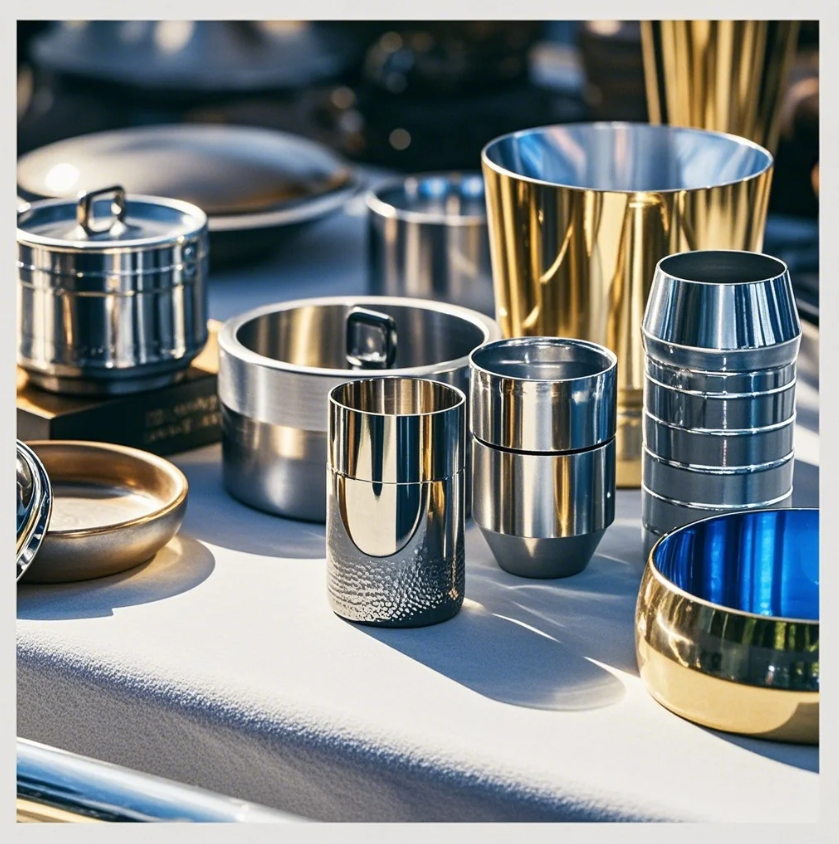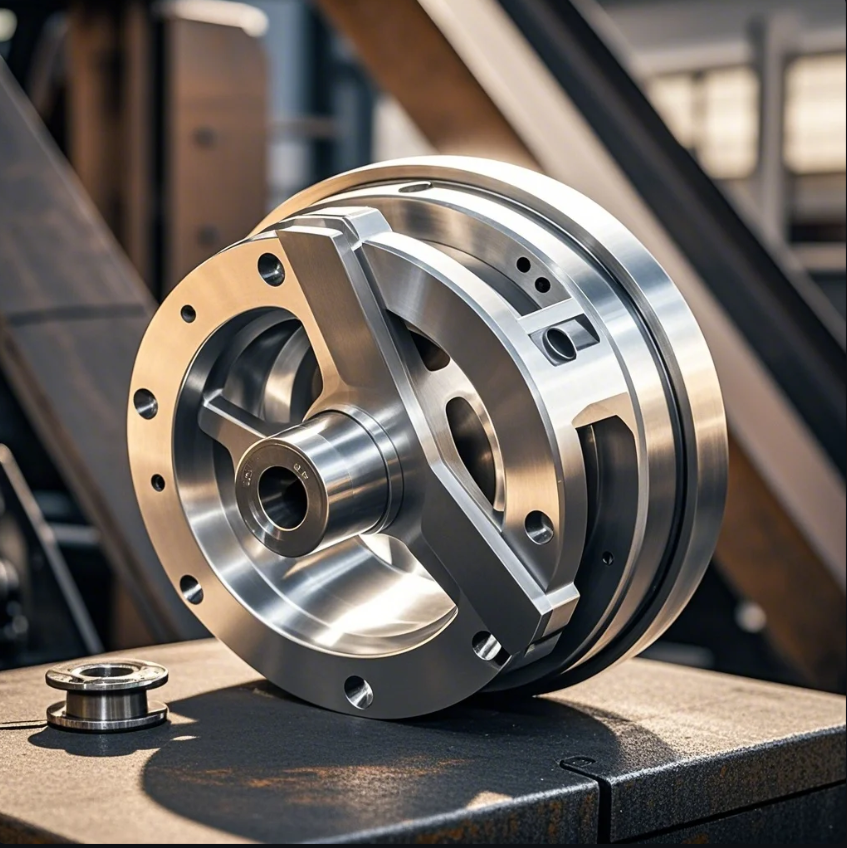TEMPLATE_START
What is the old name for a blacksmith?
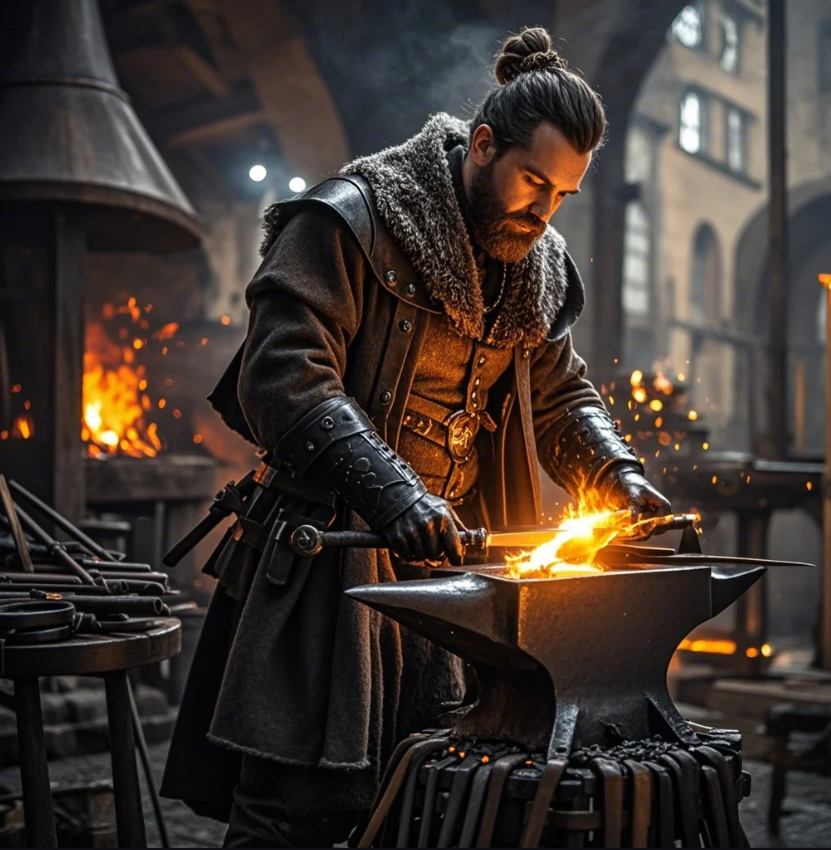
Many people are curious about the history behind the blacksmith’s trade.
This article explores historical names for blacksmiths, their cultural roots, and whether the trade still exists today.
The name may have changed, but the craft continues.
What were blacksmiths called?
Buyers often ask about the original titles given to metalworkers.
Historically, blacksmiths were called "smiths" or "ironsmiths" in many cultures.
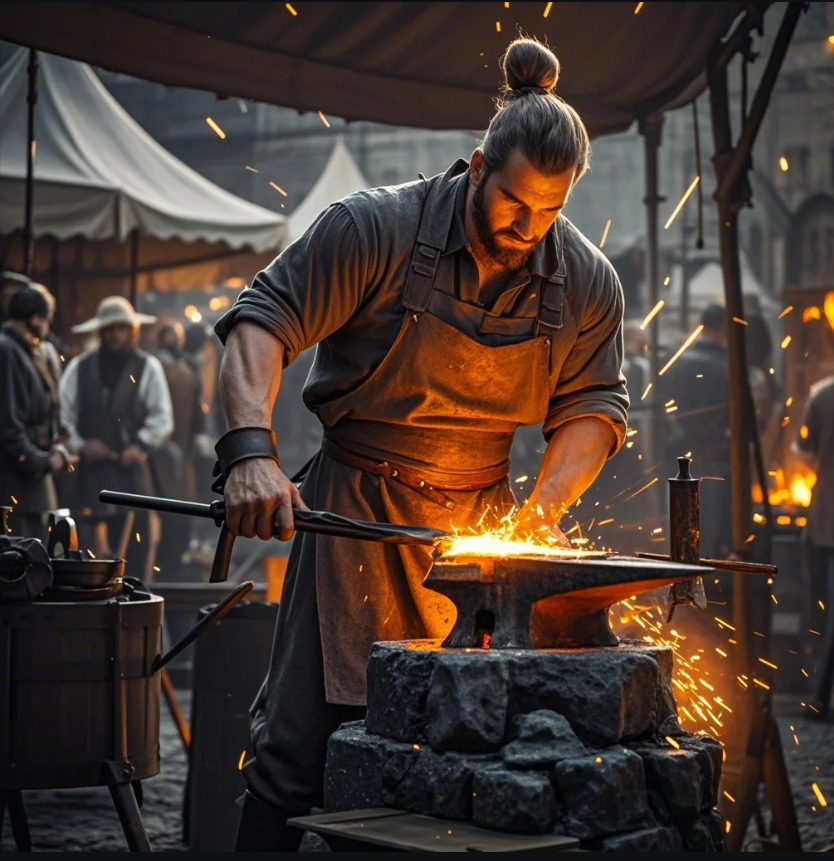
The term "smith" comes from ancient languages
The word “smith” comes from Old English smið, meaning “to strike.” It was used for anyone who worked with metal, especially iron. Over time, different cultures added prefixes: “black” for iron, “silver” for jewelry, and “gold” for fine metals.
At Prime, we respect the roots of the trade. That’s why we combine traditional forging logic with ISO-certified production lines, supplying modern-day smiths worldwide.
| Old Title | Region/Culture | Meaning |
|---|---|---|
| Smith | Anglo-Saxon | Metalworker |
| Ironsmith | Medieval Europe | Iron specialist |
| Farrier | Europe (horseshoer) | Horse hoof and shoe specialist |
| Faber | Latin | Maker or builder (toolmaker) |
| Wright | Old English/Scots | Craftsman (e.g., wheelwright) |
These terms still show up in surnames—like Smith, Wright, or Farrier—reminders of the trade’s long legacy.
What was another name for a blacksmith?
Some clients are interested in alternative or older names used historically.
Blacksmiths have also been called “farriers,” “forgers,” and “metalwrights” depending on the task and region.
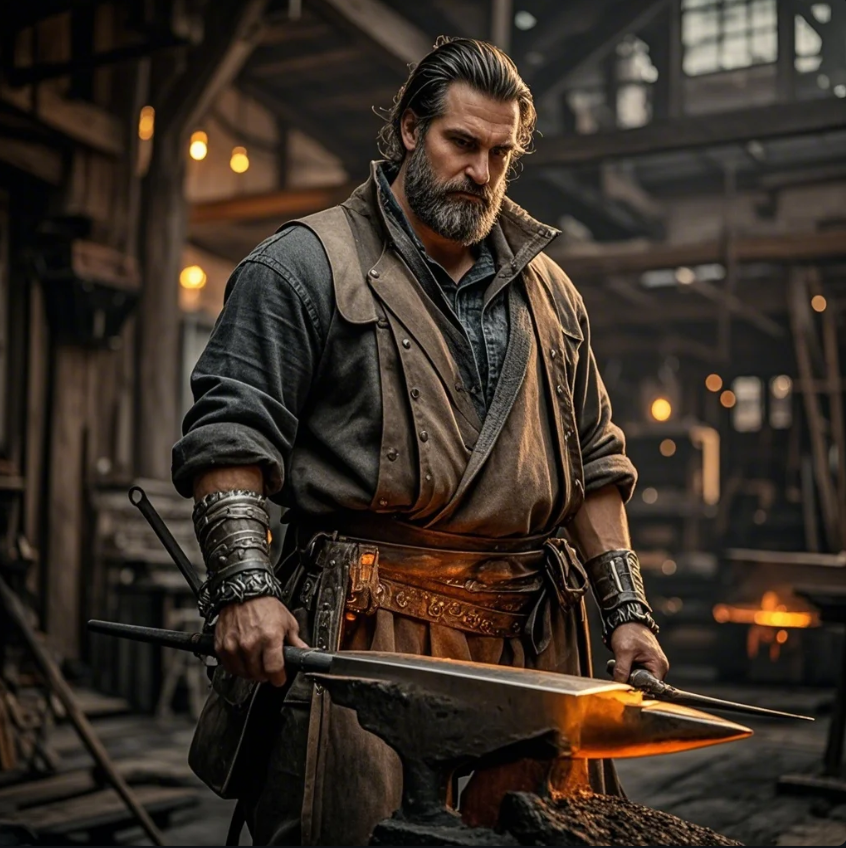
Different names reflect specialized work
Not all “smiths” did the same job. A blacksmith mainly worked with iron. But a farrier focused on horseshoes. A toolwright made hammers or chisels. A forger worked in heavier applications like weapons and industrial parts.
Prime supports modern versions of these roles by supplying custom-forged blanks, OEM hammers, and precision tool parts—for everything from blades to brackets.
| Term | Specialty | Modern Equivalent |
|---|---|---|
| Farrier | Shoeing horses | Horseshoe supplier/fitter |
| Forgeman | Heavy industry forging | Industrial metalworker |
| Toolwright | Tool and die maker | CNC machinist/toolmaker |
| Armorer | Weapon or armor forging | Knife or custom blade smith |
These specialty areas have become niches in today’s market—each with its own tools, language, and modern demand.
What Celtic name means blacksmith?
Some readers explore the Celtic or Gaelic roots of the trade.
In Celtic mythology, the blacksmith was called "Gobha" in Gaelic, and "Gofannon" in Welsh traditions.
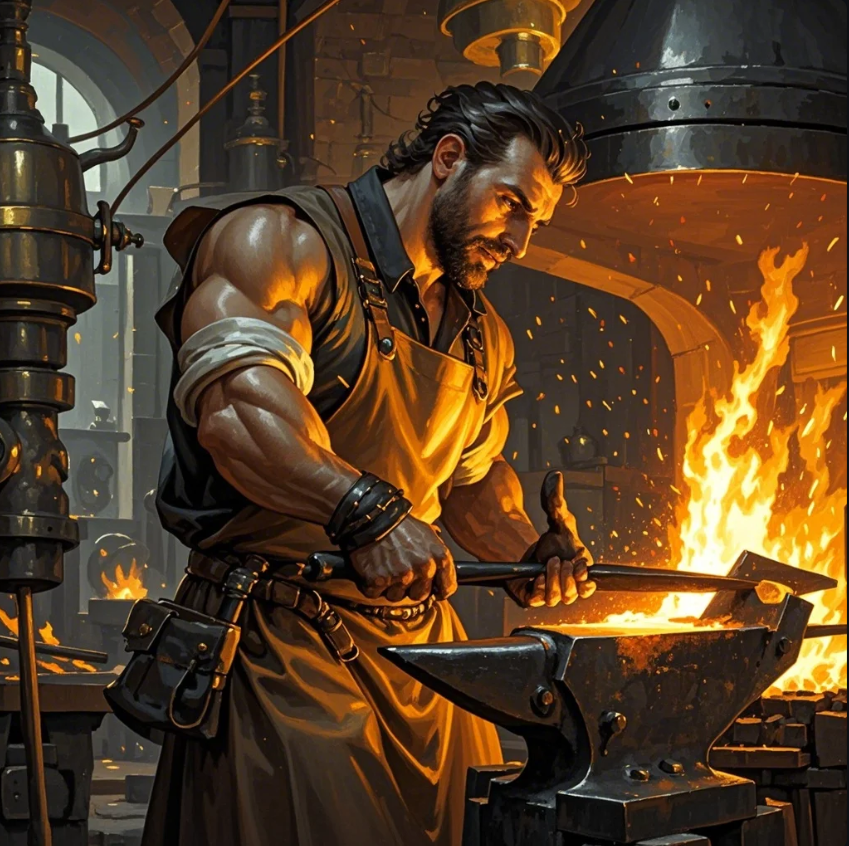
Smiths held sacred roles in Celtic culture
In early Celtic societies, blacksmiths weren’t just tradesmen—they were respected figures, sometimes considered magical. The Irish word “Gobha” means blacksmith and lives on in names like “MacGowan” (son of the smith). In Welsh lore, Gofannon was the divine smith of the gods.
Prime supplies forged parts to Celtic-inspired knife makers and tool artisans who continue these traditions in modern workshops across Europe and North America.
| Language | Word for Blacksmith | Notes |
|---|---|---|
| Irish Gaelic | Gobha | Root of names like MacGowan |
| Scots Gaelic | Gobha | Still used in traditional dialects |
| Welsh | Gof / Gofannon | Mythological figure, sacred smith |
| Old Irish | Goba | Root of smithing professions |
These cultural names still influence branding, design, and marketing language in modern artisan forging businesses.
Do blacksmiths still exist?
A common assumption is that blacksmithing ended with the industrial age.
Yes—blacksmiths still exist today and are growing in both artisanal and industrial sectors.
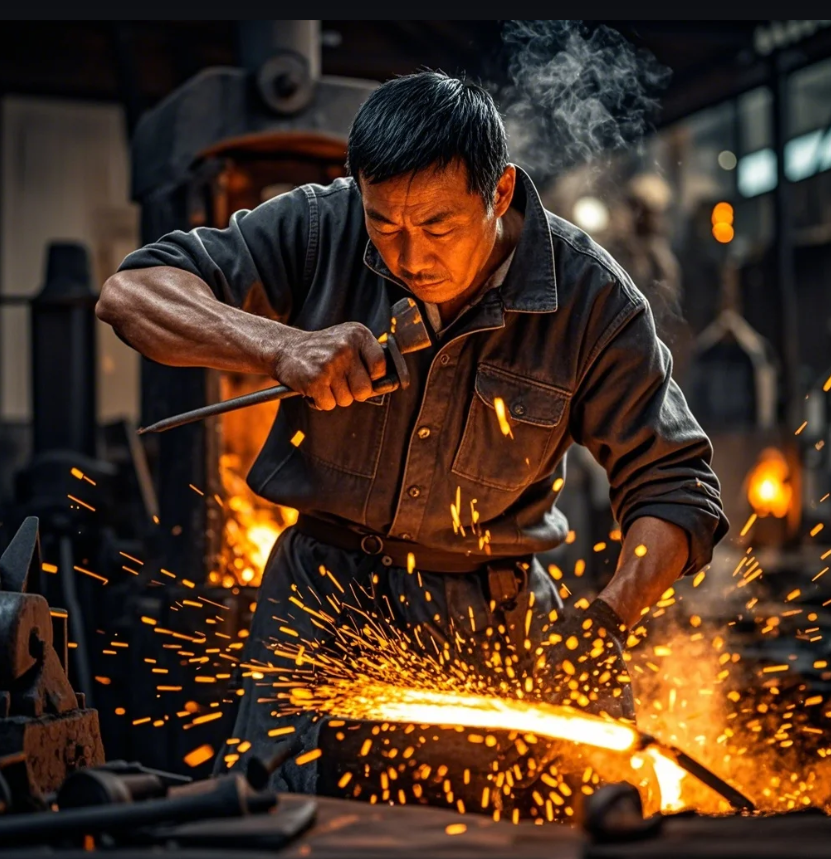
Today’s blacksmiths blend handwork with modern machines
The modern blacksmith may use a power hammer, CNC router, or welding torch. They make tools, knives, gates, furniture, and art pieces. Others work in industrial applications—creating brackets, shafts, or structural supports.
At Prime, we serve these professionals with bulk forged parts, OEM tool heads, and starter blacksmith kits—all with fast turnaround and ISO-compliant quality.
Where modern blacksmiths work:
| Industry / Niche | Product Examples | Prime’s Supply Role |
|---|---|---|
| Artisan Knifemaking | Blades, handles, bolster pieces | Forging blanks, custom alloys |
| Tool Craftsmanship | Hammers, punches, chisels | OEM forged tool heads |
| Industrial Forging | Brackets, hooks, prototypes | Bulk ISO parts, quick delivery |
| Home & Garden Decor | Gates, signs, hardware | Custom welded or cast items |
With demand rising for authentic handmade goods, custom tooling, and high-performance forged parts, blacksmithing is not only alive—it’s thriving.
结论
Blacksmithing has ancient roots—but it continues today under new names, new tools, and global markets.
At Prime, we power modern blacksmiths with traditional strength and modern precision. From forging blanks to custom OEM tool heads, we’re your global partner in reliable, scalable, and ISO-certified production.
👉 Contact us today to get a free quote, learn about bulk custom options, or build your own line of blacksmith tools with Prime’s fast delivery and expert team.
TEMPLATE_END

